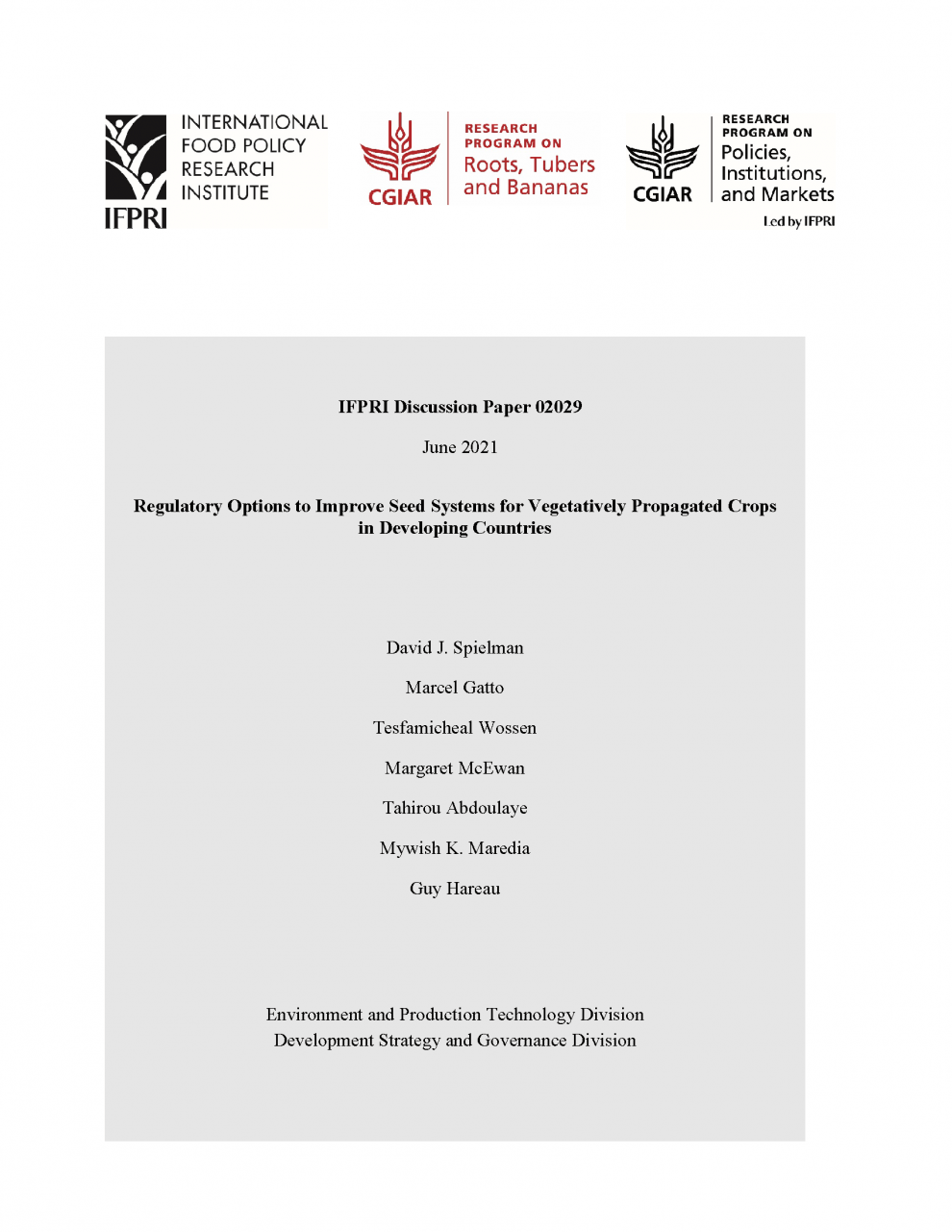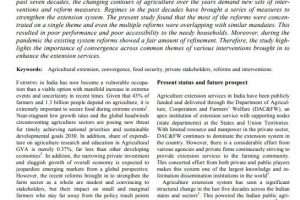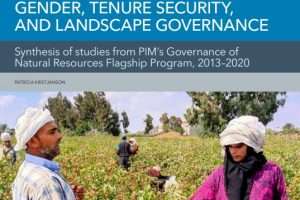In many developing countries, smallholder farmers cultivating vegetatively propagated crops (VPCs) have limited access to quality planting material. This constraint can limit both the yield of and returns on VPC cultivation. Yet policy and regulatory initiatives designed to strengthen access to quality VPC planting materials have been relatively unsuccessful to date. Part of the problem is the unique biological and economic characteristics of vegetative propagation and its distinctness from cereal crops, which dominate narratives on seed system reforms. Drawing on qualitative analysis of policy and practice, this study examines reform options related to quality assurance regulations in four crop-country combinations: cassava in Nigeria and Vietnam, and potato in Kenya and Vietnam. The study highlights theory and evidence on existing models of regulation; alternative models that may better incentivize cost-effective multiplication and distribution; and recommendations for policy, regulation, and investment in VPC seed markets. Findings indicate that regulations designed around strict and centralized quality control systems tend to limit market size, while more localized production systems are limited by both capacity and reach. These findings suggest the need for alternatives that balance a permissive regulatory regime with decentralized production systems, grassroots capacity development, market surveillance, and systems that integrate internal (producer-level) quality assurance with external (regulatory) quality assurance.
Regulatory options to improve seed systems for vegetatively propagated crops in developing countries
November 5, 2021
4 Views
2 Min Read

-
Share This!




Add Comment